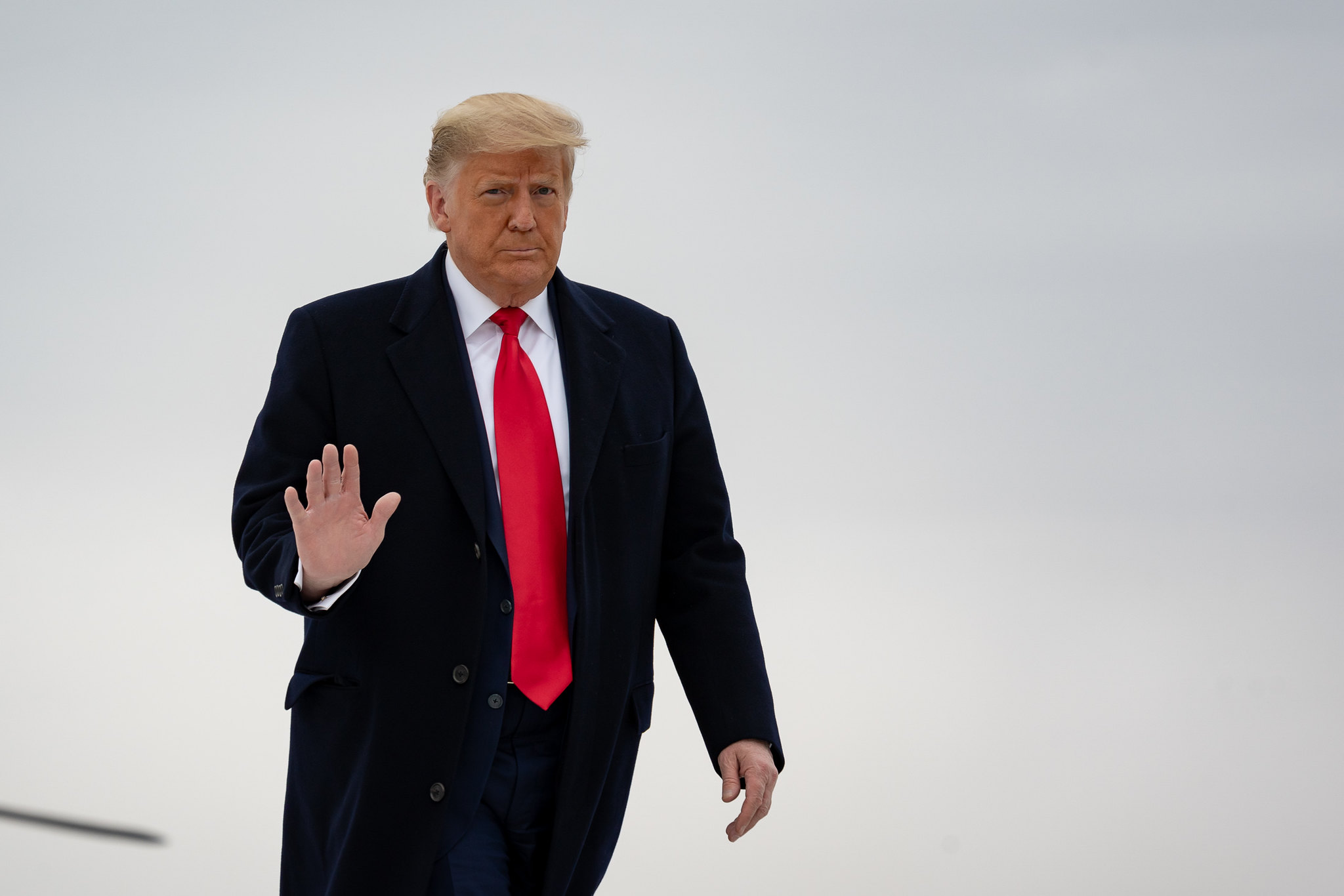Donald Trump’s 2024 campaign proposal to eliminate federal taxes on gratuities aims to appeal to service industry workers. While this move promises immediate relief for tipped employees, critics argue it primarily benefits business owners and overlooks deeper wage issues.
Donald Trump’s Tax Proposal to Eliminate Federal Taxation on Tips Aims to Win Over Service Workers
Donald Trump's tax policy as president was overwhelmingly advantageous to corporations and the affluent. Trump's hallmark tax legislation, the Tax Cuts and Jobs Act, overwhelmingly benefited those groups.
However, Trump is campaigning as a populist presidential candidate. His 2024 campaign is spotlighting his proposal to eliminate federal taxation on gratuities. According to Mother Jones, this proposal, if implemented, could bring a wave of optimism to service industry employees, particularly in Nevada, a critical battleground state with a substantial service sector that depends on tips.
“For those hotel workers and people that get tips, you’re going to be very happy, because when I get to office, we are going to not charge taxes on tips,” Trump said. “We’re going to do that right away first thing in office because it’s been a point of contention for years and years and years, and you do a great job of service.”
The official 2024 Republican Party platform, released this week, included Trump's proposal to eliminate taxes on gratuities as one of 20 "promises: "LARGE TAX CUTS FOR WORKERS, AND NO TAX ON TIPS!"
Trump's proposal to eliminate taxes on gratuities may prove advantageous to him in terms of his political prospects among service industry employees. People are encouraged to write "Vote for Trump for NO TAX ON TIPS!" on their restaurant receipts as part of his campaign.
Donald Trump's Tip Tax Proposal Faces Criticism for Benefiting Business Owners Over Low-Wage Workers
Republicans in Congress have already introduced legislation to implement Trump's proposal and eliminate federal taxation of tips. It is important to note that the measure would only exempt tips from income taxes, not payroll taxes, which are the majority of federal taxes owed by low-income workers.
However, if implemented, the proposal could negatively impact the majority of tipped laborers. The primary beneficiaries would be individuals who own and operate hotels, restaurants, and other businesses that employ tipped workers—otherwise known as individuals such as Donald Trump.
Initially, many individuals who depend on gratuities earn so little that they are already exempt from federal income taxes. For instance, half of all servers earn $32,000 or less. A server with a family earning $32,000 does not incur any federal income tax and, as a result, would not benefit from Trump's proposal.
The more significant concern is that the federal minimum wage for tipped laborers is $2.13 per hour. This wage has not increased since 1991. In addition to gratuities, these employees are expected to receive a minimum wage of $7.25 per hour. In 2024, that is far from a living wage in the United States.



 Trump Says U.S. Combat Operations in Iran Will Continue Until Objectives Are Met
Trump Says U.S. Combat Operations in Iran Will Continue Until Objectives Are Met  EU Urges Maximum Restraint in Iran Conflict Amid Fears of Regional Escalation and Oil Supply Disruption
EU Urges Maximum Restraint in Iran Conflict Amid Fears of Regional Escalation and Oil Supply Disruption  Middle East Conflict Escalates After Khamenei’s Death as U.S., Israel and Iran Exchange Strikes
Middle East Conflict Escalates After Khamenei’s Death as U.S., Israel and Iran Exchange Strikes  Israel Declares State of Emergency as Iran Launches Missile Attacks
Israel Declares State of Emergency as Iran Launches Missile Attacks  Pentagon Leaders Monitor U.S. Iran Operation from Mar-a-Lago
Pentagon Leaders Monitor U.S. Iran Operation from Mar-a-Lago  Pakistan-Afghanistan Tensions Escalate as Taliban Offer Talks After Airstrikes
Pakistan-Afghanistan Tensions Escalate as Taliban Offer Talks After Airstrikes  Australian PM Calls Alleged Western Australia Terror Plot “Deeply Shocking” After Arrest
Australian PM Calls Alleged Western Australia Terror Plot “Deeply Shocking” After Arrest  Marco Rubio to Brief Congress After U.S.-Israeli Strikes on Iran
Marco Rubio to Brief Congress After U.S.-Israeli Strikes on Iran  Germany and China Reaffirm Open Trade and Strategic Partnership in Landmark Beijing Visit
Germany and China Reaffirm Open Trade and Strategic Partnership in Landmark Beijing Visit  Trump Floats “Friendly Takeover” of Cuba as Rubio Reportedly Engages in Talks
Trump Floats “Friendly Takeover” of Cuba as Rubio Reportedly Engages in Talks  U.S.-Israel Strike on Iran Escalates Middle East Conflict, Trump Claims Khamenei Killed
U.S.-Israel Strike on Iran Escalates Middle East Conflict, Trump Claims Khamenei Killed  HHS Adds New Members to Vaccine Advisory Panel Amid Legal and Market Uncertainty
HHS Adds New Members to Vaccine Advisory Panel Amid Legal and Market Uncertainty  Trump Launches Operation Epic Fury: U.S. Strikes on Iran Mark High-Risk Shift in Middle East
Trump Launches Operation Epic Fury: U.S. Strikes on Iran Mark High-Risk Shift in Middle East  Australia Rules Out Military Involvement in Iran Conflict as Middle East Tensions Escalate
Australia Rules Out Military Involvement in Iran Conflict as Middle East Tensions Escalate  Trump Warns Iran as Gulf Conflict Disrupts Oil Markets and Global Trade
Trump Warns Iran as Gulf Conflict Disrupts Oil Markets and Global Trade  Netanyahu Suggests Iran’s Supreme Leader Khamenei May Have Been Killed in Israeli-U.S. Strikes
Netanyahu Suggests Iran’s Supreme Leader Khamenei May Have Been Killed in Israeli-U.S. Strikes  Israel Launches Fresh Strikes on Iran After Death of Supreme Leader Ayatollah Khamenei
Israel Launches Fresh Strikes on Iran After Death of Supreme Leader Ayatollah Khamenei 































